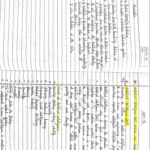NONSTEROIDAL ANTI-INFLAMMATORY
DRUGS (NSAIDS)
1
Prof. Sanjay Khattri
Dept. of Pharmacology & Therapeutics
King George’s Medical University
NONSTEROIDAL ANTI-INFLAMMATORY DRUGS
(NSAIDS)
The term “nonsteroidal” is used to distinguish these drugs from
steroids, which have a similar eicosanoid-depressing, anti-
inflammatory action.
NSAIDs are non-narcotic, non-opioid, aspirin-like analgesics.
Most currently available NSAIDs act by inhibiting the
prostaglandin (PG) synthase enzymes.
Most NSAIDs are competitive, reversible, active site inhibitors of
the COX enzymes. Aspirin inhibits them irreversibly.
2
CLASSIFICATION
Nonselective COX inhibitors (traditional NSAIDs)
Salicylates Propionic Fenamate Enolic acid Acetic acid Pyrazolone
acid derivatives derivatives derivatives
derivatives
Aspirin Ibuprofen, Mephena- Piroxicam, Ketorolac, Phenylbut-
Naproxen, mic acid. Tenoxicam Indometha- azone,
Ketoprofen, cin, Oxyphenb-
Flurbiprof- Nabumeto- utazone
en ne
Preferential Selective Analgesic-antipyretics with poor
COX-2 COX-2 Antiinflammatory action
inhibitors inhibitors
Nimesulide, Celecoxib, 1.Paraaminophenol derivative:
Diclofenac, Etoricoxib, Paracetamol(Acetaminophen).
Aceclofenac, Parecoxib. 2.Pyrazolone derivatives: Metamizol
Meloxicam, (Dipyrone), Propiphenazone. 3
Etodolac 3. Benzoxazocine derivative: Nefopam.
MECHANISM OF ACTION (MOA)
Cyclooxygenase Inhibition
Aspirin and NSAIDs inhibit the COX enzymes and PG production.
There are two forms of COX, COX-1 and COX-2.
COX-1, expressed constitutively in most cells, is the dominant
source of prostanoids for housekeeping functions.
COX-2 is the more important source of prostanoid formation in
inflammation.
4
induced by cytokines, shear stress, and tumor promoters.
5
COX1 COX2
*Expressed in all tissues *Selectively expressed in renal, brain
& endothelium, fetus
*constitutive
•COX-2 products (PG) are induced by
*COX-1 products (PGE2, PGI2) are various mediators of inflammation,
involved in normal cellular processes interleukin, superoxide radicals,
in stomach, platelets and kidney cytokines and endotoxins mainly in
inflammed areas and cause more pain
and inflammation
•Constitutive in brain and kidney
•Inducible in macula densa in
response to salt restriction
*Does not affect platelet aggregation
6
MOA CONTD…
Irreversible Cyclooxygenase Inhibition by Aspirin
Aspirin covalently modifies COX-1 and COX-2, irreversibly
inhibiting COX activity.
The duration of aspirin’s effects is related to the turnover rate of
COXs in different target tissues.
The importance of enzyme turnover in recovery from aspirin
action is most notable in platelets.
Platelets being anucleate have a markedly limited capacity for
protein synthesis.
• Inhibition of platelet COX-1–dependent TxA2 formation is 7
cumulative with repeated doses of aspirin.
MOA CONTD…
Selective Inhibition of Cyclooxygenase-2
Constitutively expressed COX-1 is the predominant source of
cytoprotective PGs formed by the GI epithelium.
COX-2 is source of PG formation in inflammation and cancer.
Selective inhibitors of COX-2 were developed based on the
hypothesis
• they would afford efficacy similar to tNSAIDs with better GI
tolerability.
8
Features of nonselective COX inhibitors and
selective COX-2 inhibitors
Action Nonselective COX inhibitors Selective/COX-2 inhibitors
1. Analgesic + +
2. Antipyretic + +
3. Antiinflammatory + +
4. Antiplatelet aggregatory + –
5. Gastric mucosal damage + –
6. Renal salt/water retention + +
7. Delay/prolongation of labour + +
8. Ductus arteriosus closure + ?
9. Aspirin sensitive asthma
precipitation + –
9
MOA CONTD…
An anti-inflammatory action: the decrease in prostaglandin E2 and
prostacyclin reduces vasodilatation and, indirectly, oedema.
An analgesic action: decreased prostaglandin generation means
less sensitisation of nociceptive nerve endings to inflammatory
mediators such as bradykinin and 5-hydroxytryptamine.
An antipyretic action: endogenous pyrogens elevate the
hypothalamic set point for temperature causing fever.
10
THERAPEUTIC USES
Three main therapeutic effects of all NSAIDs, including selective
COX-2 inhibitors are:
anti-inflammatory effect: modification of the inflammatory
reaction
• Acetaminophen, which is antipyretic and analgesic is
largely devoid of anti-inflammatory activity.
analgesic effect: reduction of certain types of (especially
inflammatory) pain
antipyretic effect: lowering of body temperature when this is
raised in disease (i.e. fever). 11
THERAPEUTIC USES
Fetal Circulatory System: Indomethacin and ibuprofen have
been used in neonates to close the inappropriately patent
ductus arteriosus.
Cardioprotection: Aspirin reduces the risk of serious vascular
events in high risk patients.
• Irreversible acetylation of platelet COX → inhibition of platelet
function until sufficient numbers of newplatelets are released.
• Permanent and complete suppression of platelet COX-1–
dependent TxA2 formation → cardioprotective effect of aspirin.
12
INDICATIONS FOR NSAIDS
Pyrexia
Mild to moderate pain
Rheumatoid arthritis
Osteoarthritis
Inflammatory arthropathies (ankylosing spondylitis,
psoriatic arthritis, Reiter’s syndrome)
Acute gout
Dysmenorrhoea
Metastatic bone pain
Headache & Migraine
Postoperative pain
Injury 13
PDA (Patent Ductus Arteriosus)
OTHER CLINICAL USES
Systemic Mastocytosis:
In patients with systemic mastocytosis, PGD2, released from
mast cells in large amounts is the major mediator of severe
episodes of flushing, vasodilation, and hypotension.
This PGD2 effect is resistant to antihistamines.
The addition of aspirin or ketoprofen provides relief.
Niacin Intolerability: Aspin inhibits PGD2 mediated flushing by
niacin.
Bartter Syndrome:
Caused by mutations in a Na+-K+-2Cl− co-transporter.
Treatment with indomethacin, combined with potassium
repletion and spironolactone, is associated with
improvement in the biochemical derangements and 14
symptoms.
ADVERSE EFFECTS OF NSAIDS
Gastrointestinal:
Abdominal pain
Nausea
Diarrhea
Anorexia
Gastric erosions/ulcers
Anemia
GI hemorrhage
Platelets:
Inhibited platelet activation
Propensity for bruising
Increased risk of hemorrhage 15
ADVERSE EFFECTS OF NSAIDS
Renal:
Salt and water retention
Edema, worsening of renal function in renal/cardiac and
cirrhotic patients
Decreased effectiveness of antihypertensive medications
Decreased effectiveness of diuretic medications
Decreased urate excretion (especially with aspirin)
Hyperkalemia
Cardiovascular:
Closure of ductus arteriosus
Myocardial infarction*
* With the exception
Stroke* of low-dose aspirin
16
Thrombosis*
ADVERSE EFFECTS OF NSAIDS
CNS:
Headache
Vertigo
Dizziness
Confusion
Hyperventilation (salicylates)
Uterus:
Prolongation of gestation
Inhibition of labuor
17
ADVERSE EFFECTS OF NSAIDS
Hypersensitivity:
Vasomotor rhinitis
Angioneurotic edema
Asthma
Urticaria
Flushing
Hypotension
Shock
18
ASPRIN & SOME OTHER IMPORTANT
NSAIDS
19
ASPIRIN
Actions-
reduces inflammation
antiinflammatory action is exerted at high doses (3–6 g/day or
100 mg/kg/ day).
analgesic(0.3–1.5 g/day) for inflammatory pain
antipyretic (i.e. reduces raised temperature)
At low doses (40-325mg) it acts as antiplatelet drug
MOA- Irreversibly inactivating both cyclo-oxygenase (COX-1
and COX-2).
Abs/Distrb/Elim- Given orally. Half-life only 30min – rapid
hydrolysis to salicylate but effects last longer because the COX
has been inactivated and new enzyme must be produced. 20
USES
1. As analgesic
2. As antipyretic
3. Acute rheumatic fever
4. Rheumatoid arthritis
5. Osteoarthritis
21
USES
6. By inhibiting platelet aggregation aspirin lowers the incidence of
reinfarction in Postmyocardial infarction and poststroke patients.
Aspirin 6–1000 mg/day reduces the incidence of myocardial
infarction (MI)
‘New onset’ or ‘sudden worsening’ angina is associated with
high infarction rate & can be reduced to half by 100–150 mg
aspirin per day for 12 weeks.
Aspirin reduces ‘transient ischaemic attacks’ and lowers
incidence of stroke in such patients
22
ADVERSE EFFECTS
Gastrointestinal disturbances, especially gastric bleeding.
In high dosage can cause ‘salicylism’ (tinnitus, vertigo, reduced
hearing); allergic reactions occasionally; renal toxicity rarely.
Can cause the potentially fatal Reye’s syndrome
(encephalopathy & liver disorder) in children after a viral
infection.
At therapeutic dose it can cause hyperuricemia.
Prolongs bleeding time. 23
PRECAUTIONS AND CONTRAINDICATIONS
Aspirin is C/I in patients who are sensitive to it and in peptic ulcer,
bleeding tendencies, in children suffering from chicken pox or
influenza.
Liver disease: can cause hepatic necrosis.
It should be avoided in diabetics, in those with low cardiac
reserve or frank CHF and in juvenile rheumatoid arthritis.
Aspirin should be stopped 1 week before elective surgery.
Pregnancy & lactation
24
G-6PD deficiency
ASPIRIN TOXICITY – TREATMENT
Decrease absorption – activated charcoal,
emetics, gastric lavage
Enhance excretion – alkalinize urine, forced
diuresis, hemodialysis
Supportive measures – fluids, decrease
temperature, bicarbonate, electrolytes, glucose,
etc…
25
PARACETAMOL
Actions:
Paracetamol has potent analgesic and antipyretic actions but
rather weaker anti inflammatory effects than other NSAIDs.
MOA:
Inhibition of COX-1, COX-2 and also the recently identified COX-3
which occurs predominantly in the CNS.
Absorption/Metabolism:
It is given orally and metabolised in the liver (half-life 2-4 hours).
Metabolized to N-acetyl paraaminobenzo qunonimine (NAPQ) by
microsomal enzyme. 26
Adverse Effects:
o Hepatotoxicity due to NPAQ
o Glutathione produced by liver detoxifies NPAQ
o Chronic alcoholics are predisposed to toxicity due to
Reduced glutathione
Alcohol induces production of NPAQ from acetaminophen.
o Antidote of choice is N – acetylcysteine 27
DICLOFENAC
Diclofenac reduces inflammation , acts as an analgesic, reducing
pain in conditions such as arthritis or acute injury.
The action of one single dose is much longer (6 to 8 hours) than
the very short half-life that the drug indicates.
This could be partly because it persists for over 11 hours in
synovial fluids.
28
Diclofenac is used for:
musculoskeletal complaints: arthritis
rheumatoid arthritis
polymyositis,
osteoarthritis,
dental pain
ankylosing spondylitis
gout attacks
Pain management in kidney stones and gallstones.
Additional indication is: acute migraines.
Used commonly to treat : mild to moderate post-operative or post-
traumatic pain, particularly when inflammation is also present.
Is effective against: menstrual pain and
endometriosis. 29
Propionic acid derivatives
• Naproxen, fenoprofen, ketoprofen, flurbiprofen and oxaprozin.
Mechanism of action:
•These drugs are reversible inhibitors of the cyclooxygenases, and
thus, inhibit the synthesis of prostaglandins.
Uses:
• All these drugs possess anti-inflammatory, analgesic, and
antipyretic activity.
•Used in the chronic treatment of rheumatoid arthritis and
osteoarthritis, because their gastrointestinal effects are generally
less intense than that of aspirin.
30
IBUPROFEN
• Ibuprofen is a NSAID originally marketed as Brufen.
• It is used for relief of symptoms of
Arthritis
Primary dysmenorrhea,
Fever
As an analgesic, especially where there is an
inflammatory component.
31
Ibuprofen is known to have an antiplatelet effect, though it is
relatively mild and short-lived when compared with aspirin or
other better-known antiplatelet drugs.
Ibuprofen is a core medicine in the World Health Organization’s
“Essential Drugs List”, which is a list of minimum medical needs
for a basic healthcare system.
32
MEFENAMIC ACID
Used to treat pain, including menstrual pain. It is typically
prescribed for oral administration.
Decreases inflammation (swelling) and uterine contractions by
inhibiting prostaglandin synthesis.
Used for perimenstrual migraine headache prophylaxis, with
treatment starting 2 days prior to the onset of flow or 1 day
prior to the expected onset of the headache and continuing for
the duration of menstruation.
33
Since hepatic metabolism plays a significant role in mefenamic
acid elimination, patients with known liver deficiency may be
prescribed lower doses.
Kidney deficiency may also cause accumulation of the drug
and its metabolites in the excretory system. Therefore patients
suffering from renal conditions should not be prescribed
mefenamic acid.
34
INDOMETHACIN
Indomethacin, is a potent nonselective COX inhibitor and may
also inhibit phospholipase A and C, reduce neutrophil migration,
and decrease T cell and B cell proliferation.
Probenecid prolongs indomethacin’s half-life by inhibiting both
renal and biliary clearance.
Clinical Uses:
Gout and ankylosing spondylitis. In addition, it has been used to
treat patent ductus arteriosus.
35
Clinical Uses:
An ophthalmic preparation for conjunctival inflammation to
reduce pain after traumatic corneal abrasion.
Gingival inflammation is reduced after administration of
indomethacin oral rinse.
Epidural injections produce a degree of pain relief similar to that
achieved with methylprednisolone in post laminectomy
syndrome.
36
KETOROLAC
Ketorolac is an NSAID promoted for systemic use mainly as an
analgesic, not as an antiinflammatory drug (though it has typical
NSAID properties).
Rapidaly absorbed after oral and i.m. administration.
It is most often given intramuscularly or intravenously, but an
oral dose formulation is available.
Higly plasma protien bound and 60% excreted unchanged in
urine.
37
T1/2 is 5-7 hours.
The drug has been used successfully to replace morphine in
some situations involving mild to moderate postsurgical pain.
When used with an opioid, it may decrease the opioid
requirement by 25–50%.
An ophthalmic preparation is available for anti-inflammatory
applications.
Toxicities are similar to those of other NSAIDs, although renal
toxicity may be more common with chronic use.
38
PIROXICAM
Piroxicam, an oxicam is a nonselective COX inhibitor but at high
concentrations also inhibits polymorphonuclear leukocyte
migration, decreases IgM rheumatoid factor and inhibits
lymphocyte function.
Suitable for use as long-term antiinflammatorydrug in
rheumatoid and osteo-arthritis, ankylosing spondylitis.
Toxicity includes gastrointestinal symptoms (20% of patients),
dizziness, tinnitus, headache, and rash.
When piroxicam is used in dosages higher than 20 mg/d, an
increased incidence of peptic ulcer and bleeding is
encountered. 39
INDOMETHACIN
Inhibits PLPA2 and possesses immunouppressive property
Indicated in Bartter’s syndrome
MEFANAMIC ACID
possesses PG receptor antagonistic and PLPA2 inhibitory activity.
Useful in dysmenorrhoea.
Piroxicam and Tenoxicam are longest acting NSAIDs due to
enterohepatic circulation.
Nefopam does not inhibit PG synthesis but relieves traumatic,
40
post-op and musculoskeletal pain.
COX-2 SELECTIVE INHIBITORS
These drugs have advantage of very little GI toxicity.
Renal toxicity is similar to traditional NSAIDs and chances of
thrombosis (acute MI and stroke) are increased on prolonged
use.
Celecoxib, rofecoxib and valdecoxib are sulphonamide derivatives
(can cause hypersensitivity reactions)
Etoricoxib is longest acting and requires hepatic function
monitoring during its use.
41
Lumiracoxib is a newer cox 2 inhibitor that has more activity in
the acidic medium.
COX-2 SELECTIVE INHIBITORS
COX-2 inhibitors have been recommended mainly for treatment
of osteoarthritis and rheumatoid arthritis.
Other indications include primary familial adenomatous
polyposis, dysmenorrhea, acute gouty arthritis & acute
musculoskeletal pain.
Currently, 3 selective COX-2 inhibitors (also called coxibs)
Celecoxib, Etoricoxib and Parecoxib are available in India.
Rofecoxib and valdecoxib were withdrawn due to increased
risk of thrombotic disorders like myocardial infarction.
42
THANK YOU
43










